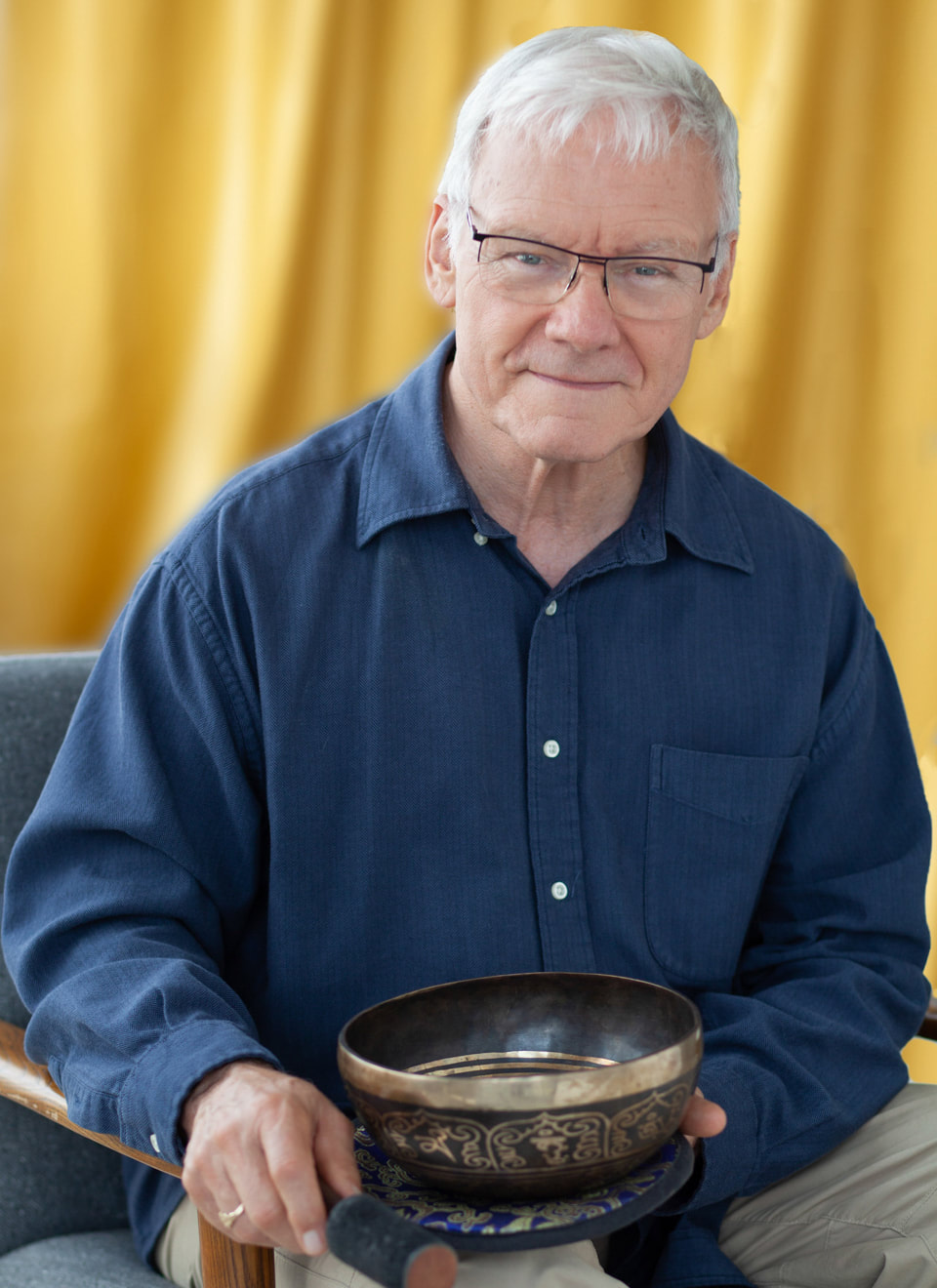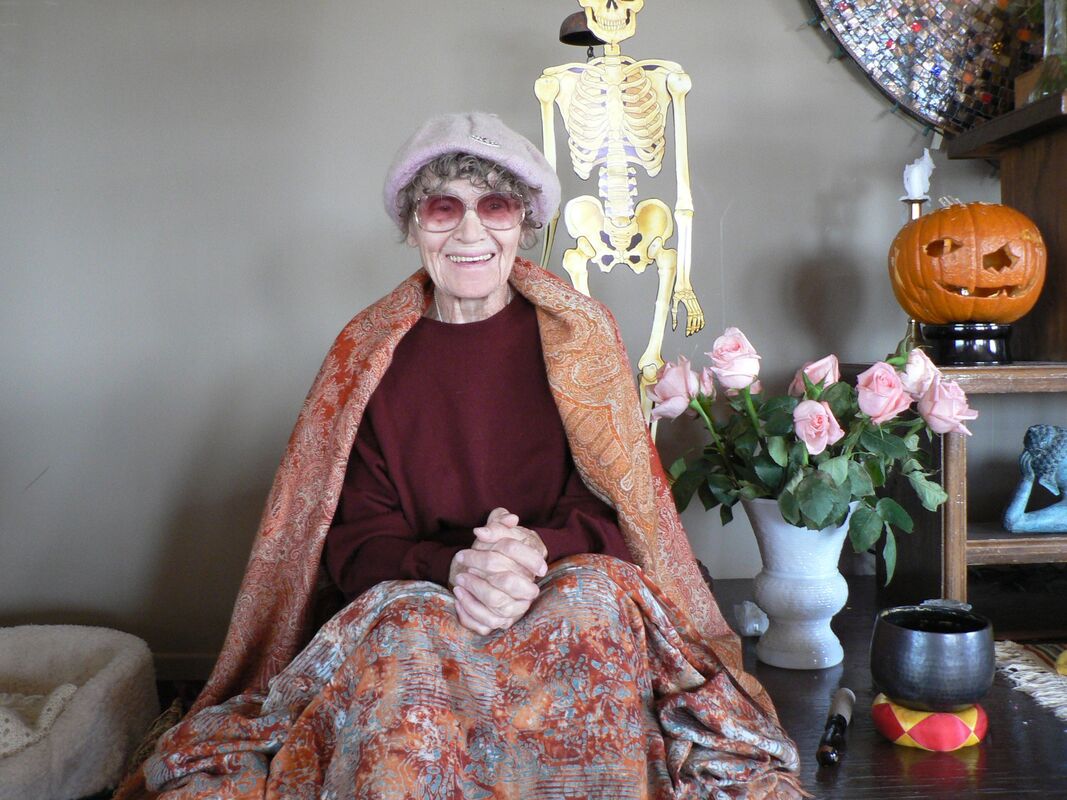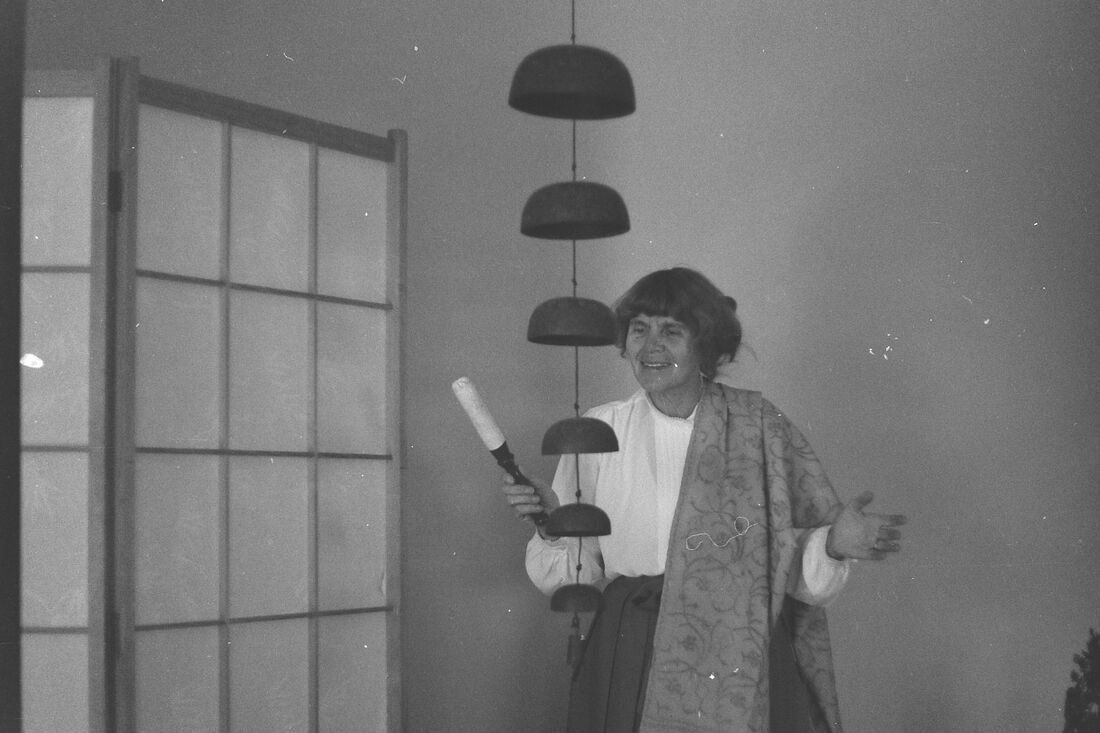Written by Megan Johnson

Community Overview
The Portland Insight Meditation Community (PIMC), founded in 2004, is an “Experiment in American Buddhism”. Their current purpose statement is “to improve the lives of participants, their families, and the greater community through meditative practice and a lifestyle that supports liberation from suffering”*. Their practices are based upon the Vipassana meditation style, a part of the Theravada tradition of Buddhism. This community is highly active, providing daily meditation seminars, retreats, and community meetings both online and in person. Their Facebook has almost 3,000 followers where they post recordings of all morning meditations and other community gatherings. It is unclear how many community members make up the PIMC, but I would assume it is close to the amount of Facebook followers they have. Although the exact demographics of the community are unknown, from looking at pictures it seems to be a majority of white Americans. Despite this, PIMC is aware of its lack of diversity and is committed to creating an environment for all individuals regardless of race, ethnicity, culture, sexual orientation, religion, and age. They created a DEI committee in 2021 and closely record all of their DEI efforts on their website. As a non-profit organization, PIMC relies on donations and volunteers to fund itself. There is no membership fee to participate as they pride themselves on being inclusive to all. However, they do have suggested fees as donations for all of their classes and retreats. (1)
Kalyana Mitta Affinity Groups
This community is affiliated with six different Kalyana mitta affinity groups across different parts of Oregon. Kalyana Mitta is a Pali term for “spiritual friend”. These groups are made up of six to twelve members who come together regularly to study and share Dharma practice experiences. The format is normally 20-30 minutes of meditation, a group discussion of an agreed-upon topic, or a discussion of a book the group is reading together. The purpose of these affinity groups is to bring people together to share insights and explore Dharma topics in safe group-setting discussions. There are no requirements to starting a group other than showing a commitment and passion for insight meditation and having people interested in being a part of the group. A Facilitator said that the joy in creating a group is helping to bring out the wisdom within each member – more so following the Zen tradition that everyone is capable of awakening if they so choose to find it. (2)
The Founder – Robert Beatty

Robert Beatty states that he was a part of the first wave of Theravada Buddhist teachers who brought mindfulness from Asia in the 1970s (3). Robert has his Masters in Environmental Studies and Social Work. Starting in 1972, Robert Beatty studied meditative practices in India, Burma, and the US. In 1983, Robert was empowered to start teaching himself by his mentor, Ruth Denison. Ruth has heavily influenced his practices and is cited throughout their website. Similar to Ruth, Robert uses movement, music, poetry, drumming, and other non-traditional applications of meditation. Robert advertises his meditative practice to help facilitate relationships between intimate partners, parents, and friends. Robert is still the guiding teacher at PIMC. He is not a monk and does not follow the celibate life as he is a husband and father. In his work at the center, he combines various Buddhist methods and teachings with western psychotherapy. Robert leads Retreats, daily morning meditations, and Individual Guidance. His Individual Guidance is made to help those dealing with trauma as well as spiritual seekers to have an experienced guide to lead an individual through the healing meditative practices towards awakening. Robert is heavily respected by his community due to his years of experience. (4)
Ruth Denison Background

Ruth Denison, born and raised in Germany, founded the Dhamma Dena Desert Vipassana Center in Joshua Tree, California. Ruth was the first Buddhist teacher to lead an all-women’s retreat in the United States. Her teachings heavily influenced the founder of PIMC, Richard Beatty, and are based upon Vipassana meditation. Ruth was raised with Christian traditions and discovered the practice of deep concentration, which she now refers to as meditation, within her prayers to God. In her early life, she was forced into labor camps after her hometown in Berlin was overtaken by Russia in 1945. In these terrible conditions, Ruth practiced deep concentration in her prayer to get through it. She cites now that she holds no animosity towards those who harmed her during those times as she understands it was the result of karma from a past life. She eventually escaped and found a teaching position in the US through a teacher’s organization. Living in Los Angeles, in 1958, she met her husband, a retired monk, who then introduced her to Buddhism and the Zen form of meditation. (5)
As stated in an interview, what she enjoyed most about Buddhism was the deep connection she felt with her body, but rarely mentioned the importance of the spiritual or religious traditions included within Buddhism. In 1960, she and her husband went to practice Buddhism in Japan, Thailand, and India. However, they eventually ended up in Burma where she learned Vipassana meditation within the Theravada tradition. She stayed in Burma practicing Vipassana meditation for three months with Sayagyi U Ba Khin. She described her time there as a breakthrough experience in her meditative journey. U Ba Khim emphasized awareness of bodily sensations to obtain an understanding of the mind-body system and there Ruth learned more about the genuine purpose of mediation. Although U Ba Khin taught Vipassana meditation focused on just the sitting position, Ruth realized that many individuals did not have the religious or cultural background to be able to sit still for long periods in the United States. Therefore, she experimented with other applications such as mindfulness while standing, walking, running, jumping, lying down, rolling on the grass, etc. This perspective on Vipassana Meditation allowed her students to develop awareness in the present moment in any moment in everyday life. Her teachings are still based on Buddha’s teachings but for the western culture and lifestyle. (6)

History of Theravada Buddhism in the west
The first Theravada Buddhist temples on the west coast were organized by Sri Lankan and Thai lay people and monastics in the early part of the 1970s. During this time many Americans were introduced to Theravada Buddhism and its related meditative practices. Many Americans then traveled to Asian countries to learn more. Both Robert Beatty and Ruth were examples of this. As they learned more about the practices in their countries of origin, many American-raised teachers thought about how to simplify these practices to offer a more digestible form of Buddhism for western culture. Therefore, many teachers sought to focus on just the crucial teachings of the Buddha. Most believed the most important teachings were the ones centered around Vipassana meditation and this is what influenced many of the convert Buddhist teaching centers, including PIMC. The first Vipassana meditation retreat center established by non-immigrant Buddhists in the United States was the Insight Meditation Society, created in 1975. (7)
Their Current Practices
Vipassana Meditation is a part of the Theravada tradition that emphasizes finding a deep awareness between your physical and mental experiences to reach awakening. Vipassana, meaning to see things as they are, uses deep concentration on Buddha’s teachings to understand the Four Noble Truths: what suffering is, what causes suffering, how to end suffering, and the Eightfold path to obtain the end of suffering. Their Approach to Vipassana Meditation is popular amongst many other convert Buddhist communities, using meditation practices from Buddhism to create mindfulness within modern life while mostly disregarding its religious practices. However, their practice is still derived from the Dharma, the Four Noble truths, and the Eightfold path toward enlightenment. Just as Ruth Denison primarily focused on the meditative side of Buddhism, this community has done the same. (8)

The Portland Insight Meditation Community offers various retreats, classes, open weekly groups, and daily meditations. There are five teachers, a majority being older white males, who lead these events. Several of their teachers are graduates of a three-year Dharma Leader program taught by the founder of PIMC. This course is meant to prepare the teachers to be able to transmit the true core teachings of the Buddha. In December, there are three retreat options with a suggested fee of $35-$80 dollars. One of the retreat offerings is “Map for the journey” taught by the founder, Robert Beatty. In this one-day retreat, Robert leads a spiritual practice following the Eightfold path. Another all-day retreat called “Qi-Gong Retreat” taught by Jim Dalton combines the basic Vipassana practice and the use of poetry to create deep explorations of the mind. There is also a five-week class “Intro to Heart Cultivation” with Douglas Pullin. This weekly class uses meditation practices to cultivate limitless loving goodwill, compassion, joy, and equanimity in each individual. To do so, Douglas will have his students focus on the four Brahmaviharas, also known as divine states, to guide their meditation. (9)
Conclusion:
Although a fairly young Buddhist community, the Portland Insight Meditation Community is highly active and continuously growing. As a primarily white organization they are working to create a more diverse community through their DEI efforts. Moving forward, it is important that PIMC continues to recognize the cultural significance of the Buddhist religion and its places of origin.
Sources:
- https://www.portlandinsight.org/
- https://www.spiritrock.org/kalyana-mitta-best-practices
- https://www.portlandinsight.org/teachers
- https://www.robertbeatty.com/about.html
- https://www.robertbeatty.com/ruth-denison-article.html
- https://www.dhammadena.org/about/legacy-of-ruth-denison
- https://press.uchicago.edu/Misc/Chicago/089002.html
- https://www.vridhamma.org/Sayagyi-U-Ba-Khin
- https://www.portlandinsight.org/retreats-classes-events